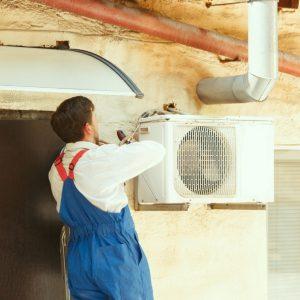Table of Contents
You need to take proper care of your boiler to avoid costly repairs. Here are the top 7 ways to take care of your boiler from engineers at Corgi.
Check the boiler pressure
You need to check the boiler pressure regularly to assess whether or not it needs to be topped up. If there is a reading between 1-2 bars, it’s ideal. However, if the reading goes below one bar, it’s the best time to add pressure. Check the manual to look for the pressure gauge and how to top it up accordingly.
Note that, if the boiler pressure is too low, it will have an impact on the efficiency of your boiler. For your boiler to operate at maximum efficiency, it needs to have a pressure reading between 1-1.5. The gauge on your boiler will give you an accurate pressure reading.
During the installation process, the engineer should point out the pressure gauge to you. If you notice the reading is too low, you need to use the taps to increase it. Always aim for the lower end since the pressure will increase slightly as the system starts heating up. The manual also explains this clearly. If you’re not sure about what to do, it’s always a good idea to talk to an engineer.
Bleed the radiators
If there is air trapped in the radiators it will prevent water from being circulated properly in the system. Are the radiators warm at the bottom but still cold at the top? It’s a sign that you need to bleed them. Get a radiator key and a clean microfiber cloth to do it.
Turn off your heating
If you leave the heat on, hot water may start spraying out of the radiators. Get the radiator key and turn the valve at the top anti-clockwise. You will hear a hissing sound as the trapped air escapes from the radiator. If any excess water leaks out, you can clean it using a microfiber cloth.
When the hissing finally stops and only water is leaking out, tighten the valve by turning it clockwise. Once this is completed, you can turn on the central heating. Next, you need to check the pressure of the radiators by reading the gauge. It’s most likely that the pressure will drop after bleeding your radiators. Top up the pressure if you notice it’s too low by using the lever tap on the boiler. Don’t forget to check the radiators to make sure they are heating up properly.
Balance the radiators
Check the radiators to see if those far away from the boiler are colder than those closer. If this happens, make sure you balance the radiators. It’s not a straightforward process as bleeding the radiators. It’s a good idea to call an experienced engineer for this process. Note that, balancing the radiators involves adjusting them to make sure there is a proper distribution of heated water to every radiator inside the house.
Avoid Blockages
Make sure the boiler is properly ventilated. There shouldn’t be any clutter near it. Avoid covering or blocking the air vents. Additionally, check to make sure the outside flues aren’t blocked. If you have installed your boiler in an airing cupboard that’s often used as storage, there needs to be proper ventilation.
Look for a blue flame
Is the boiler flame visible? If yes, check to see if it’s blue, orange, or yellow. A yellow or orange flame is a sign there’s something wrong and you need to call an engineer immediately.
Insulate system pipes
During the cold winter months, any water left in the pipes will freeze leading to blockages. Eventually, your pipes may start bursting. If you want to unfreeze these pipes, you need to pour tepid water. Avoid using water that is too hot because it may lead to further damage.
The best way to avoid frozen pipes is by insulating them. You can do this by using various materials and methods. If your pipes are faulty, you may be forced to completely repipe the entire system. This is far too costly and time-consuming. It’s not something ideal for you, especially during winter.
Final words
As a homeowner, taking care of your boiler is very important. With these tips, you don’t need to spend more money or time on your boiler.




